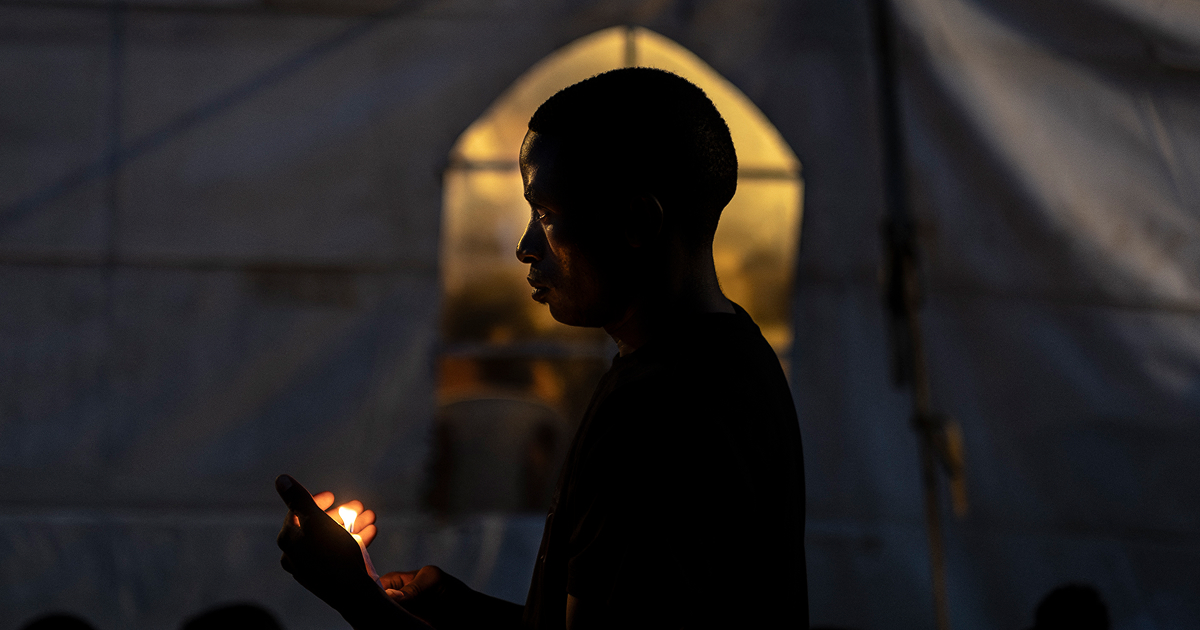Antonia Fraseron how the strong female characters and implicit romance in the Book of Ruth had a profound effect on her own development
My introduction to the Bible was strictly commercial. Our family – we were then four and became eight – were told that we had to learn a verse of the Bible every Sunday to earn our pocket money. We lived at the time in North Oxford, since my father was a don at the University and my mother, the bossy one, rather gave us to imagine that every North Oxford child learnt the Bible for the sake of their pocket money: although, curiously enough, I never found myself discussing the subject with my girl friends at the Dragon School. We preferred peeping at the end of the grown-ups’ novels for certain incidents, certain unions, shall we say, of a romantic nature.
That left the problem of the actual verse, which had to be changed every week. Or did it? My naughty younger brother Paddy quickly discovered “Jesus wept” – famously the shortest verse in
the Bible – and challenged my father to allow it every week. Nothing in the rules against it, he argued. I lost interest in this spiritual debate as I went combing the Bible myself for something completely different. This was romance.
I had just discovered the works of Georgette Heyer: Devil’s Cub, These Old Shades and so on. The titles still resonate with me happily. Surely the Bible would provide something similar? It did not seem promising. This was despite an interesting verse where the children “struggled within” Rebekah, wife of Isaac, and the Lord explained it to her as follows: “Two nations are in thy womb.” I thought that might lead somewhere, although my mother was less enthusiastic.
Then the magic moment came when I turned from the Book of Judges – “In those days there was no King in Israel: every man did that which was right in his own eyes”, which was a quick learn
– to the Book of Ruth. I couldn’t believe it.
Here was a social mystery story and a romance and a piece of history all rolled into one. Here was a strong central – and, above all, female – character in Naomi. Surely Naomi was going to be the heroine of the tale, despite the book being given the name of her daughter-in-law, Ruth.
Or so I thought when I first encountered Naomi. It was true that Ruth seemed to have a pleasant character and adapt well to the disappearance of her husband. This was before Ruth produced her bombshell pronouncement. Naomi suggested to Ruth that, as a daughter of Moab, she should now abandon Judah.
To this, Ruth replied: “Intreat not to leave thee, or to return from following after thee: for whither thou goest, I will go; and where thou lodgest, I will lodge: thy people shall be my people, and thy God my God.” I found this an agreeable verse to learn even as a child, and as a romantic endearment very handy as a grown-up. After that, things get even better with the introduction of the rich man, Boaz. At first, I didn’t go for Boaz, not quite understanding that here we had a sort of biblical Mr Darcy.
From the moment Boaz enquires of his servant put in charge of the reapers: “Whose damsel is this?”, romance is in the air. The whole passage when Boaz apparently falls for Ruth because of her kindness to her mother-in-law is full of subtle hints about Ruth’s charms – which have something to do with Boaz’s passion.
The pair then indulge in an elaborate ritual of courtship, with Ruth protected by Boaz from his own (male) reapers: “Have I not charged the young men that they shall not touch thee? and when thou art athirst, go unto the vessels, and drink of that which the young men have drawn.” Gradually, things hot up between the couple until Naomi takes a hand, and in a delicately erotic passage instructs Ruth as follows. It is the night when barley is going to be winnowed; Ruth must mark the place where Boaz lies down at the end of the long day, wash herself, “uncover his feet” and lie down herself. He will tell her what to do...
There are numerous snatches in the New Testament which light up my imagination, such as the moment when Mary Magdalene declares to the Apostles that Jesus has appeared to her. But when it comes to my favourite book, there can be no question that the Book of Ruth holds sway.
And besides, I know Ruth’s declaration so well by now that I could recite it for my pocket money every Sunday with ease – and pleasure.
Antonia Fraser’s Lady Caroline Lamb: A Free Spirit (Orion, £25) is out now
<em>Antonia Fraser<strong> </strong>on how the strong female characters and implicit romance in the Book of Ruth had a profound effect on her own development</em>
My introduction to the Bible was strictly commercial. Our family – we were then four and became eight – were told that we had to learn a verse of the Bible every Sunday to earn our pocket money. We lived at the time in North Oxford, since my father was a don at the University and my mother, the bossy one, rather gave us to imagine that every North Oxford child learnt the Bible for the sake of their pocket money: although, curiously enough, I never found myself discussing the subject with my girl friends at the Dragon School. We preferred peeping at the end of the grown-ups’ novels for certain incidents, certain unions, shall we say, of a romantic nature.
That left the problem of the actual verse, which had to be changed every week. Or did it? My naughty younger brother Paddy quickly discovered “Jesus wept” – famously the shortest verse in<br>the Bible – and challenged my father to allow it every week. Nothing in the rules against it, he argued. I lost interest in this spiritual debate as I went combing the Bible myself for something completely different. This was romance.
I had just discovered the works of Georgette Heyer: <em>Devil’s Cub</em>, <em>These Old Shades </em>and so on. The titles still resonate with me happily. Surely the Bible would provide something similar? It did not seem promising. This was despite an interesting verse where the children “struggled within” Rebekah, wife of Isaac, and the Lord explained it to her as follows: “Two nations are in thy womb.” I thought that might lead somewhere, although my mother was less enthusiastic.
Then the magic moment came when I turned from the Book of Judges – “In those days there was no King in Israel: every man did that which was right in his own eyes”, which was a quick learn<br>– to the Book of Ruth. I couldn’t believe it.
Here was a social mystery story and a romance and a piece of history all rolled into one. Here was a strong central – and, above all, female – character in Naomi. Surely Naomi was going to be the heroine of the tale, despite the book being given the name of her daughter-in-law, Ruth.
Or so I thought when I first encountered Naomi. It was true that Ruth seemed to have a pleasant character and adapt well to the disappearance of her husband. This was before Ruth produced her bombshell pronouncement. Naomi suggested to Ruth that, as a daughter of Moab, she should now abandon Judah.
To this, Ruth replied: “Intreat not to leave thee, or to return from following after thee: for whither thou goest, I will go; and where thou lodgest, I will lodge: thy people shall be my people, and thy God my God.” I found this an agreeable verse to learn even as a child, and as a romantic endearment very handy as a grown-up. After that, things get even better with the introduction of the rich man, Boaz. At first, I didn’t go for Boaz, not quite understanding that here we had a sort of biblical Mr Darcy.
From the moment Boaz enquires of his servant put in charge of the reapers: “Whose damsel is this?”, romance is in the air. The whole passage when Boaz apparently falls for Ruth because of her kindness to her mother-in-law is full of subtle hints about Ruth’s charms – which have something to do with Boaz’s passion.
The pair then indulge in an elaborate ritual of courtship, with Ruth protected by Boaz from his own (male) reapers: “Have I not charged the young men that they shall not touch thee? and when thou art athirst, go unto the vessels, and drink of that which the young men have drawn.” Gradually, things hot up between the couple until Naomi takes a hand, and in a delicately erotic passage instructs Ruth as follows. It is the night when barley is going to be winnowed; Ruth must mark the place where Boaz lies down at the end of the long day, wash herself, “uncover his feet” and lie down herself. He will tell her what to do...
There are numerous snatches in the New Testament which light up my imagination, such as the moment when Mary Magdalene declares to the Apostles that Jesus has appeared to her. But when it comes to my favourite book, there can be no question that the Book of Ruth holds sway.
And besides, I know Ruth’s declaration so well by now that I could recite it for my pocket money every Sunday with ease – and pleasure.
<em>Antonia Fraser’s </em>Lady Caroline Lamb: A Free Spirit <em>(Orion, £25) is out now </em>

















